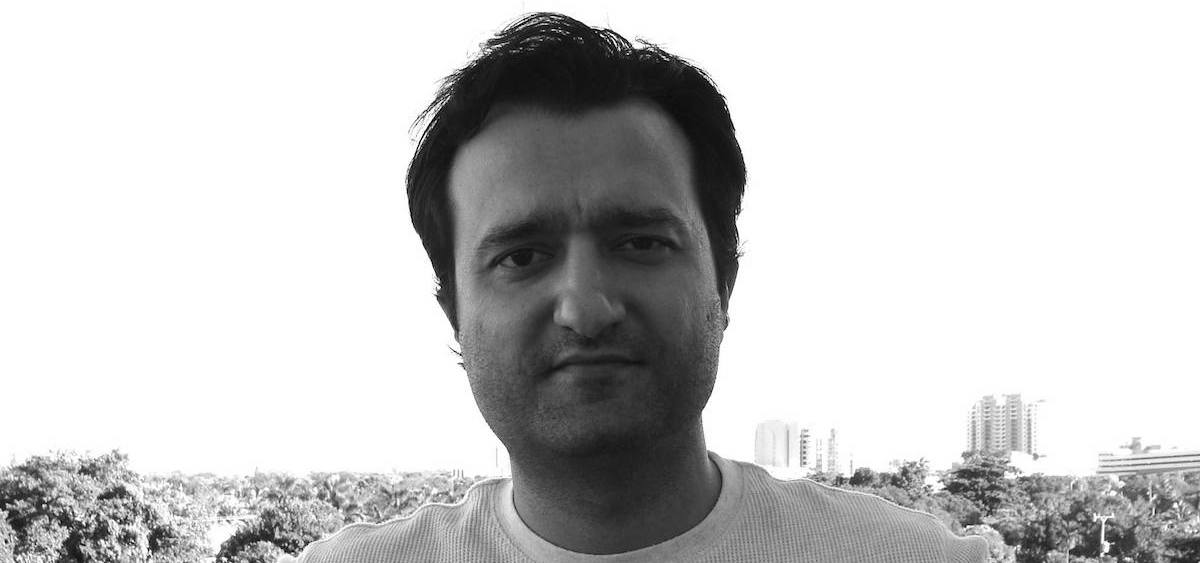Culture

OU Postdoc Poet Receives National Acclaim
By: Jessica Salerno
Posted on:
In high school, Jaswinder Bolina was inspired by the verse he read by world-famous poets such as William Shakespeare and John Keats, but the idea of poetry as a career path didn’t set in until much later.
“It didn’t occur to me that there were people alive still writing it, because in high school you always read dead people,” he says. “And occasionally you would hear of much more famous poets who were out there publishing, but it all felt very far away.”
There’s no longer any distance between Bolina, a postdoctoral fellow in Ohio University’s Department of English, and the field of poetry. His work has appeared in numerous literary journals, as well as in The Best American Poetry 2011. His most recent manuscript, Phantom Camera, won the 2012 Green Rose Prize from New Issues Press. The prize offers a $2,000 award and publication of his work in spring 2013.
Bolina got serious about pursuing poetry as a profession after taking a poetry workshop with Dean Young at Loyola University in Chicago. Bolina majored in philosophy but was writing on the side.
“Dean’s a working writer, and he introduced me to the idea that the country is filled with people who are writing and publishing,” Bolina says.
After graduating from Loyola, Bolina earned an M.F.A. in creative writing from the University of Michigan, where he met Ohio University Distinguished Professor Mark Halliday at a reception.
“It seemed like his view of poetry and how poetry should be written was very different from the people I’d worked with previously,” Bolina recalls.
Bolina came to Ohio University in 2005 to pursue his Ph.D. in English. Halliday helped direct his dissertation, and the two met regularly to discuss Bolina’s approach to poetry. The student won the Colorado Prize for Poetry in 2006 for his manuscript Carrier Wave, but since then, Halliday says Bolina’s writing style has changed significantly.
“He wrote poems at University of Michigan that you could call experimental,” Halliday says. He described them as intelligent and complicated, but difficult to understand. Halliday pushed Bolina to try more voice-driven work.
In the majority of his new poems, Bolina explores his personal experiences through the mindset of a different character, from a U.S. senator to a married family man.
“I take things that have actually happened, real things, and I attach them to these kinds of invented speakers, so I can talk about real feelings but not necessarily true events,” he says. He describes Phantom Camera as similar to a collection of singles on an album.
It typically takes Bolina about two weeks to write a poem from start to finish, not including later editing and tweaking. But it can vary by poem, depending on the idea or inspiration. Usually he starts with a line or a phrase and lets his imagination guide him.
“As a writer you’re always noticing things, and you think somebody ought to write about this experience that you’ve just observed,” he says. “It turns out that somebody is you.”
As for the infamous writer’s block, he admits that it can be frustrating when his writing doesn’t meet his expectations. But producing great work more than makes up for it.
“There’s literally a high that comes off of it that is very difficult to replicate in any other place,” he says. “It’s when you know you’ve come up with something that you care about that’s good.”
Bolina is wrapping up his postdoctoral position in June. He’ll continue to teach writing and developing his craft in his new job as assistant professor of creative writing in the Humanities Department at Lesley University in Cambridge, Mass.
Read more about Bolina, including samples of his work, at http://www.jaswinderbolina.com.
Article courtesy of the Ohio University Office of Research Communications

